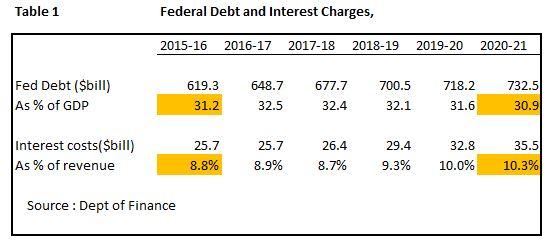Understanding The Importance Of Middle Managers In Today's Workplace

Table of Contents
The Bridge Between Leadership and Employees
Middle managers serve as a vital link, connecting senior leadership's strategic vision with the day-to-day operations of frontline teams. They are responsible for translating complex strategic goals into actionable plans that individual teams can understand and implement. This clear communication is essential for ensuring everyone is working towards the same objectives. Without effective middle managers, this crucial communication chain breaks down, leading to confusion, inefficiency, and ultimately, a lack of organizational alignment.
- Translating Strategic Goals: Middle managers take high-level strategic directives from upper management and break them down into smaller, manageable tasks suitable for their teams. This involves clear communication, ensuring every team member understands their role and how it contributes to the overall organizational goals.
- Facilitating Upward Communication: Middle managers act as a conduit for feedback from frontline employees to senior leadership. This crucial upward communication provides valuable insights into team challenges, successes, and areas for improvement that might otherwise go unnoticed.
- Examples of Effective Communication: Daily stand-up meetings, weekly progress reports, regular feedback sessions, and open-door policies all contribute to clear and consistent communication between middle managers and their teams, and between the teams and upper management. These methods ensure that information flows smoothly in both directions, promoting better collaboration and understanding.
Driving Productivity and Efficiency
Middle managers play a critical role in driving team productivity and overall organizational efficiency. Their responsibilities extend beyond simply assigning tasks; they involve actively monitoring team performance, identifying bottlenecks, and implementing strategies to optimize workflows. This proactive approach significantly contributes to a more efficient and productive work environment.
- Performance Monitoring and Improvement: Middle managers regularly assess team performance, identify areas needing improvement, and implement corrective actions. This often involves conducting performance reviews, providing constructive feedback, and developing individualized improvement plans.
- Employee Development and Training: By providing ongoing training, mentoring, and support, middle managers empower their team members to enhance their skills and productivity. This might include providing access to training programs, coaching on specific techniques, and creating opportunities for professional development.
- Workflow Optimization and Resource Allocation: Effective middle managers analyze workflows, identifying inefficiencies and bottlenecks. They then implement strategies to optimize processes, allocate resources effectively, and eliminate unnecessary steps. This includes implementing new technologies and streamlining existing procedures to improve overall team efficiency.
- Examples: Implementing project management tools, introducing process improvement initiatives like Lean or Six Sigma, and designing skill-development programs are all ways middle managers enhance team productivity and efficiency.
Fostering a Positive and Motivated Workforce
Beyond operational efficiency, middle managers are vital in creating a positive and supportive work environment that fosters employee engagement and motivation. Their ability to build strong relationships with their team members and create a culture of recognition and appreciation directly impacts team morale and productivity.
- Building Team Morale: Middle managers foster positive relationships with their team members through regular communication, recognition of achievements, and creating opportunities for team bonding. This involves creating a collaborative environment where employees feel valued and respected.
- Mentorship and Advocacy: Effective middle managers act as mentors and advocates for their team members, providing guidance, support, and helping to navigate workplace challenges. This creates a sense of trust and loyalty among team members.
- Recognition and Rewards: Regularly recognizing and rewarding team achievements is crucial for boosting morale and motivating employees. This might involve verbal praise, small gifts, team lunches, or formal employee recognition programs.
- Examples: Team-building activities, regular one-on-one meetings focused on employee development, and employee recognition programs are all effective tools used by middle managers to foster a positive work environment.
Adaptability and Change Management
In today's rapidly evolving business landscape, adaptability is crucial. Middle managers are often at the forefront of implementing organizational changes, ensuring smooth transitions and minimizing disruption to team operations. Their ability to effectively communicate changes and address concerns is essential for successful change management.
- Communicating Change Effectively: Middle managers are responsible for translating organizational changes into clear, understandable messages for their teams. This involves addressing any concerns proactively and providing necessary training and support.
- Leading Change Management Initiatives: Middle managers often lead change management initiatives within their teams, ensuring the smooth implementation of new processes, technologies, or strategies. This requires strong leadership skills and the ability to motivate and guide teams through periods of transition.
- Adapting to Evolving Business Needs: Middle managers must be flexible and adaptable, quickly adjusting strategies and processes in response to changing market conditions or business priorities. This requires a proactive approach to problem-solving and a willingness to embrace new challenges.
- Examples: Leading the implementation of new software, training employees on new processes, adapting to changes in market demands, and streamlining workflow processes based on feedback are all ways that middle managers demonstrate adaptability and successful change management.
Conclusion
In conclusion, the importance of effective middle managers in today's workplace cannot be overstated. They are essential for translating strategy, driving productivity, fostering positive work environments, and managing change. Investing in the development and support of your middle management team is an investment in your overall organizational success. Don't underestimate the power of your middle managers – empower them to excel and watch your business thrive. Learn more about optimizing your middle management strategies today!

Featured Posts
-
 Spot Market For Russian Gas Eu Discussion On Phaseout Strategies
Apr 24, 2025
Spot Market For Russian Gas Eu Discussion On Phaseout Strategies
Apr 24, 2025 -
 Reduced Funding And Increased Tornado Risk A Critical Examination Of The Trump Era
Apr 24, 2025
Reduced Funding And Increased Tornado Risk A Critical Examination Of The Trump Era
Apr 24, 2025 -
 Covid 19 Test Fraud Lab Owners Guilty Plea
Apr 24, 2025
Covid 19 Test Fraud Lab Owners Guilty Plea
Apr 24, 2025 -
 60 Minutes Executive Producers Resignation Independence Concerns Following Trump Legal Action
Apr 24, 2025
60 Minutes Executive Producers Resignation Independence Concerns Following Trump Legal Action
Apr 24, 2025 -
 Is Canadas Fiscal Future At Risk Examining Liberal Spending
Apr 24, 2025
Is Canadas Fiscal Future At Risk Examining Liberal Spending
Apr 24, 2025
